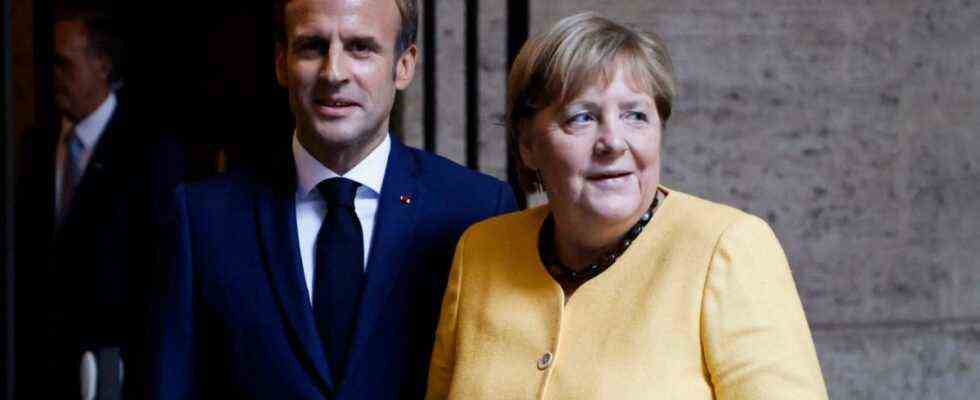Why should Angela Merkel say goodbye to France in Beaune of all places? Beaune is the wine capital, idyll in the center of Burgundy, of delightful beauty and provinciality, just as there are many delightful beauties in the German and French provinces. Beaune stands for a concept of home that is typical for these Franco-German relations and for Europe in general. What a fitting coincidence that President Emmanuel Macron’s confidante and European Secretary of State is also Beaune and is currently engaged in a very ugly conflict between Paris and London.
These relations between states cannot be killed in Europe, even if the many Brussels councils and commission initiatives sometimes give the impression that everything is happening in these latitudes under the EU logo. Merkel’s farewell trip to France makes it necessary to draw attention to the opposite: Just as the relationship between two states – Germany and France – stood at the beginning of the history of European unification, the relationship between individual members also determines the big picture today, and consequently the success of the EU.
Suddenly, pride and honor are once again a matter of negotiation
There is no better evidence of this than the escalation in the fisheries dispute between France and Great Britain, which has just left the EU. A little thing has been inflated and made a principle, pride and honor are suddenly a matter of negotiation, and a dozen cutters are declared a test case for national identity.
It is not difficult to stir up a few conflicts between states and play the old power game on a continent full of interests. Or the other way around: It is infinitely more complex to recognize conflicts in good time, to resolve them and to maintain a climate of openness in which provocations are not caught and are not used for bare domestic political advantage.
The Franco-British constellation with a historically grown rivalry, a notorious disinterest in one another and two – well then – very self-confident men at the top demonstrates the instability of the construct.
There were enough conflicts, but Merkel and four presidents did not let them escalate
Merkel and Macron, on the other hand, fostered an intensity of exchange that was stronger than any conflict. There were certainly enough of them. Germany and France are not the dream couple among the European nations, but they have understood that they are doomed to be role models in terms of population, size and economic strength. It is these bilateral relations that ultimately hold Europe together – it is not the EU that makes states partners.
This is not a doctrine for political theory, but a very practical reference for day-to-day business: only the very persistent communication between the heads of government in particular ensures that conflicts are controlled in Europe. The attitude towards Libya, the Aegean dispute with Turkey, the arms deals, nuclear power, finance and tax policy and so much more can be driven up to the fundamental conflict between Berlin and Paris at any time, also to have bargaining ground for the next rendezvous . The voters in France or Germany, plagued by similar neuroses, would have been receptive to this. It shows a high degree of common sense that neither Merkel nor the four French presidents allowed this to happen during their term of office.

